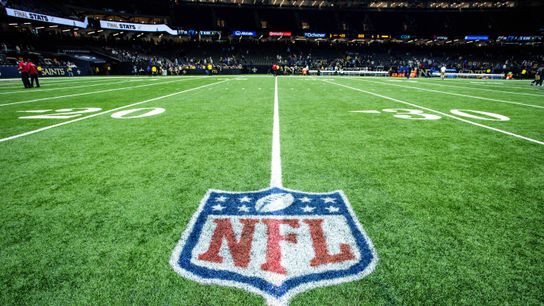The worst-kept secret in professional sports is, officially, no longer a secret. The NFL is working toward moving to an 18-game regular season, beginning the official process by holding preliminary discussions with the NFLPA.
“We have talked at a very, very, very high level superficially, with a recognition . . . about, ‘Yeah, this is something that we should be talking about,’” NFLPA executive director Lloyd Howell told the Washington Post. “And we should really kick the tires and understand what else goes into that decision-making process. Where does the 18th game come from? I think the foregone conclusion is well, you just grab it, like, in what would otherwise be [preseason games] in August. You play it forward. But these are details that really need to be fleshed out. But, again, there are other economic, health and safety matters that also need to be clear to our members before there’s ever an agreement about an 18th game.”
The current collective bargaining agreement between the NFL and its players association runs through 2030, but a deal to expand the regular season could be struck at any time, and both sides have their own motivations to reach a potential agreement.
On the NFL's side, the first, second, third, eighth, and 15th most important reasons are revenue generation. The league was on the losing end of a judgement in the Sunday Ticket trial that could result in a $14.4 billion liability. That figure, if it survives appeal, is greater than the valuation of the NFL's richest team (the Dallas Cowboys) -- by more than $5 billion.
Furthermore, the NBA is in the process of quadrupling its television agreements, despite declining ratings. An 11-year, $76 billion contract with ABC/ESPN, NBC/Peacock, and TNT or Amazon, approaches the NFL's 11-year, $110 billion deal with its TV partners (signed in 2021), despite the fact that the NFL accounted for 93 of the top 100 live TV events in 2023 and the NBA didn't crack the list at all.
On the NFLPA's side, an 18th game would result in more money for membership. (The NFL's highest-paid players in 2024 will be Joe Burrow and Trevor Lawrence, at $55 million apiece; the new NBA TV deals are expected to push salaries past the $100 million mark.) Schedule expansion is also viewed as the easiest path to get the NFL to bend on off-field priorities for the NFLPA (because owners would make the lion's share of the money from an 18th game.)
So if an 18th game is inevitable, the question becomes: does it get tacked on at the end, or the beginning?
Needless to say, college football would prefer to keep Labor Day Weekend to itself. That spot on the calendar has become a 5-day kickoff extravaganza, and games like LSU-Florida State, which drew 9.17 million viewers on Labor Day Sunday, have become tentpole events on the calendar. Considering college football has to share December and January with the NFL -- even more so than usual moving forward, with CFP opening-round games going head-to-head with NFL games on Dec. 21, and semifinal games airing on Thursday and Friday to avoid NFL playoff games in addition to the Monday night championship game -- having the first weekend of September to itself is nice.
Thankfully, college football appears safe for now, though not out of any sense of broader obligation for the NFL.
A 9.17 million audience on a Sunday might be huge for college football, but that's still a bad number for the NFL. Sunday Night Football averaged 21.4 million viewers in 2023, a 5-year high which retained its spot as the most-watched series on television.
In the broader culture, Labor Day weekend is still the last weekend of summer, and people are already conditioned to watching the NFL on weekends in January and February, when the weather confines people indoors in most of the country.
The NFL pushed its final regular-season weekend back when the schedule grew from 16 games to 17 in 2021, and Roger Goodell told Pat McAfee back in April that a President's Day Super Bowl is a priority for him.
"I'd rather replace a preseason game with a regular season game any day. If we got to 18 and two (preseason games), that's not an unreasonable thing," Goodell said. "That ends up on President's Day weekend, which is a 3-day weekend. (The game) is Sunday night, and then you have Monday off."
The Super Bowl has already become a second Sunday in February holiday, and getting to President's Day weekend would require pushing back another week, to the third Sunday.
Furthermore, pushing the Super Bowl back aids the NFL in another of its long-term priorities: winning its Cold War with the NBA. The NFL has already taken Christmas Day from the NBA, its draft annually overshadows the opening round of the NBA playoffs, and pushing the Super Bowl back a week would require the NBA to move its All-Star game off President's Day weekend.
Fortunately for college football, the NBA is in its dead period over Labor Day. There's simply more to be gained for the NFL by pushing deeper into the winter, rather than grabbing the last light of summer.
The only way for the NFL to push forward and backward would be to add a second bye week in conjunction with the 18th game... but where's the money in that?
